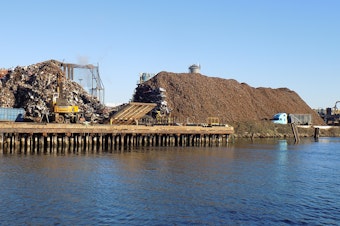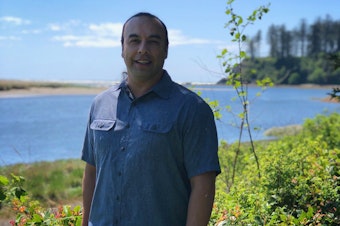John Ryan
Environment Reporter
About
John Ryan joined KUOW as its first full-time investigative reporter in 2009 and became its environment reporter in 2018. He focuses on climate change, energy, and the ecosystems of the Puget Sound region. He has also investigated toxic air pollution, landslides, failed cleanups, and money in politics for KUOW.
Over a quarter century as an environmental journalist, John has covered everything from Arctic drilling to Indonesian reef bombing. He has been a reporter at NPR stations in southeast and southwest Alaska (KTOO-Juneau and KUCB-Unalaska) and at the Seattle Daily Journal of Commerce.
John’s stories have won multiple national awards for KUOW, including the Society of Professional Journalists' Sigma Delta Chi awards for Public Service in Radio Journalism and for Investigative Reporting, national Edward R. Murrow and PMJA/PRNDI awards for coverage of breaking news, and Society of Environmental Journalists awards for in-depth reporting.
John welcomes tips, documents, and feedback. Reach him at jryan@kuow.org or for secure, encrypted communication, he's at heyjohnryan@protonmail.com or 1-401-405-1206 on the Signal messaging app.
Location: Seattle
Languages: English, some Spanish, some Indonesian
Professional Affiliations: SAG-AFTRA union member and former shop steward; Society of Environmental Journalists member and mentor
Stories
-

Health
Seattle fishing firm skimps on quarantine. Covid-19 outbreaks hit 110 crew members
A Seattle seafood company has had Covid-19 outbreaks on three of its six factory trawlers. Pandemic safety measures for the fishing industry are largely voluntary in Washington state, and not all companies follow them.
-

Environment
The scramble to help Chinook salmon past landslide danger zone
One of the most important food sources for the Northwest’s endangered orcas was devastated by a rockslide.
-

Government
Replacing West Seattle Bridge expected to take half a decade
If the badly cracked bridge can’t be fixed, transportation officials say it would take at least four to six years to replace.
-

Health
Quit the tear gas, doctors tell cops. It might exacerbate the pandemic
Using tear gas or other chemical irritants can worsen the risk of Covid-19 spreading through a crowd, according to a petition signed by more than 2,000 health professionals.
-

Traffic congestion returns to Seattle area
As more people get out from their homes and behind the wheel, traffic volumes are bouncing back in the Seattle area. That means the nemesis of the Seattle commuter is returning as well. Congestion.
-

Environment
Novel virus could spread rapidly among orcas
Some Northwest residents don’t do social distancing well, which leaves them especially vulnerable to an outbreak of a highly contagious respiratory virus. These residents are orcas.
-

Health
A sockeye season like no other — because Covid-19
Thousands of people flood into remote parts of Alaska each summer from Washington and other states to catch salmon and get the fish ready for market. That influx during a pandemic has locals worried.
-

Health
Are you a loud talker? You might be a superspreader
A new study into how loud talking can spread viruses could shed light on a major outbreak at a choir practice in Skagit County.
-

Environment
In Seattle’s polluted valley, pandemic and particulates are twin threats
From a boat on the Duwamish River, it’s easy to see giant yellow excavators plucking crushed cars off the ground and swinging them toward an open-air shredder. At Seattle Iron and Metal, mounds of shredded steel as big as apartment buildings loom above the river.
-

Health
This Washington tribe has zero coronavirus cases. They plan to keep it that way
"If we were to lose a handful of those people, it would just be devastating."